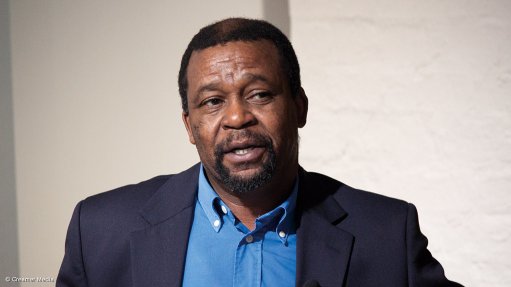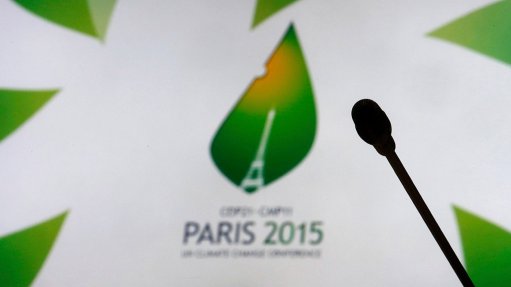Mozambique should be careful when granting minerals licences as sector grows strongly
The minerals extraction sector of the Mozambique economy grew by 14.9% in the fourth quarter of last year, compared with the fourth quarter of 2013. This was recently reported by the country’s National Institute of Statistics. The economy as a whole grew by 7%.
Minerals, along with agriculture, forestry, fishing and hunting, form the primary sector of the Mozambique economy and the strong growth in the minerals sector played a significant role in pushing growth in this sector to 8.8% during the fourth quarter. This made this sector, which accounts for 24.9% of the country’s gross domestic product, the fastest-growing sector of the economy.
Second place in the growth league was taken by the tertiary (or services) sector, which came in at 8.1%. Within this category, commerce and repair services did the best, growing at 8%. The secondary sector of the economy – construction, manufacturing, electricity and water – grew by 7.7%; construction was the biggest impetus for this, growing at 12.9%.
Separately, last month, Iraqi-born Norwegian geologist and hydrocarbons specialist Farouk Al-Kasin warned Mozambicans that their government should exercise care in choosing companies when awarding minerals extractions licences. “The selection of the correct company is extremely important, because, unhappily, many of these companies do not do a good job in this area,” he affirmed. “So, systemising a process of selection, making it more responsible and transparent, is very important.”
He also urged journalists and civil society organisations in Mozambique to exercise constant vigilance, so that they could expose bad projects, which benefited only a minority of the population. Al-Kasin was director of resource management in the Norwegian Petroleum Directorate for 18 years before his retirement. He was also, in 1971, one of the original proposers of the creation of the directorate. He has been described in leading international media as, for example, the “man behind Norway’s oil success” (Time magazine) and the “Iraqi who saved Norway from oil” (the Financial Times).
Earlier, the Mozambican Confederation of Business Associations and the US Agency for International Development issued a joint report entitled ‘The Competitiveness of Mozambique and the Boom in Natural Resources’. In the report, they urge the Mozambique government and mining companies operating in the country to conclude “contracts that explicitly depend on future market conditions”. The newspaper O País reported that this recommendation is aimed at reducing disagreements and concomitant problems during contract renegotiations.
The proposal in the report is that government and miners insert clauses into their contracts that would mean that, if the relevant commodity prices rose or fell by a predetermined amount, both parties would divide the resulting profit or loss, following already established rules. Commodity prices in the international markets will go up and down over time and it is best that politicians recognise and accept this, affirmed the report. As a producer of two major energy minerals, coal and gas, Mozambique is clearly exposed to the risks (and gains) created by price volatility. Consequently, government and mining groups should conclude contracts “that explicitly depend on future market conditions”. To this end, these contracts would be indexed to significant and agreed price changes. They would also be effective for agreed periods.
The report recognised that fluctuating commodity prices presented problems for government in terms of what variables in the economy should reflect these price changes: available net international reserves (both assets and foreign currency), consumption or foreign investment. The report proposes that investments be linked to international prices. This is because “it would cost dearly to allow consumption to suffer any major blow”.
Comments
Press Office
Announcements
What's On
Subscribe to improve your user experience...
Option 1 (equivalent of R125 a month):
Receive a weekly copy of Creamer Media's Engineering News & Mining Weekly magazine
(print copy for those in South Africa and e-magazine for those outside of South Africa)
Receive daily email newsletters
Access to full search results
Access archive of magazine back copies
Access to Projects in Progress
Access to ONE Research Report of your choice in PDF format
Option 2 (equivalent of R375 a month):
All benefits from Option 1
PLUS
Access to Creamer Media's Research Channel Africa for ALL Research Reports, in PDF format, on various industrial and mining sectors
including Electricity; Water; Energy Transition; Hydrogen; Roads, Rail and Ports; Coal; Gold; Platinum; Battery Metals; etc.
Already a subscriber?
Forgotten your password?
Receive weekly copy of Creamer Media's Engineering News & Mining Weekly magazine (print copy for those in South Africa and e-magazine for those outside of South Africa)
➕
Recieve daily email newsletters
➕
Access to full search results
➕
Access archive of magazine back copies
➕
Access to Projects in Progress
➕
Access to ONE Research Report of your choice in PDF format
RESEARCH CHANNEL AFRICA
R4500 (equivalent of R375 a month)
SUBSCRIBEAll benefits from Option 1
➕
Access to Creamer Media's Research Channel Africa for ALL Research Reports on various industrial and mining sectors, in PDF format, including on:
Electricity
➕
Water
➕
Energy Transition
➕
Hydrogen
➕
Roads, Rail and Ports
➕
Coal
➕
Gold
➕
Platinum
➕
Battery Metals
➕
etc.
Receive all benefits from Option 1 or Option 2 delivered to numerous people at your company
➕
Multiple User names and Passwords for simultaneous log-ins
➕
Intranet integration access to all in your organisation


















